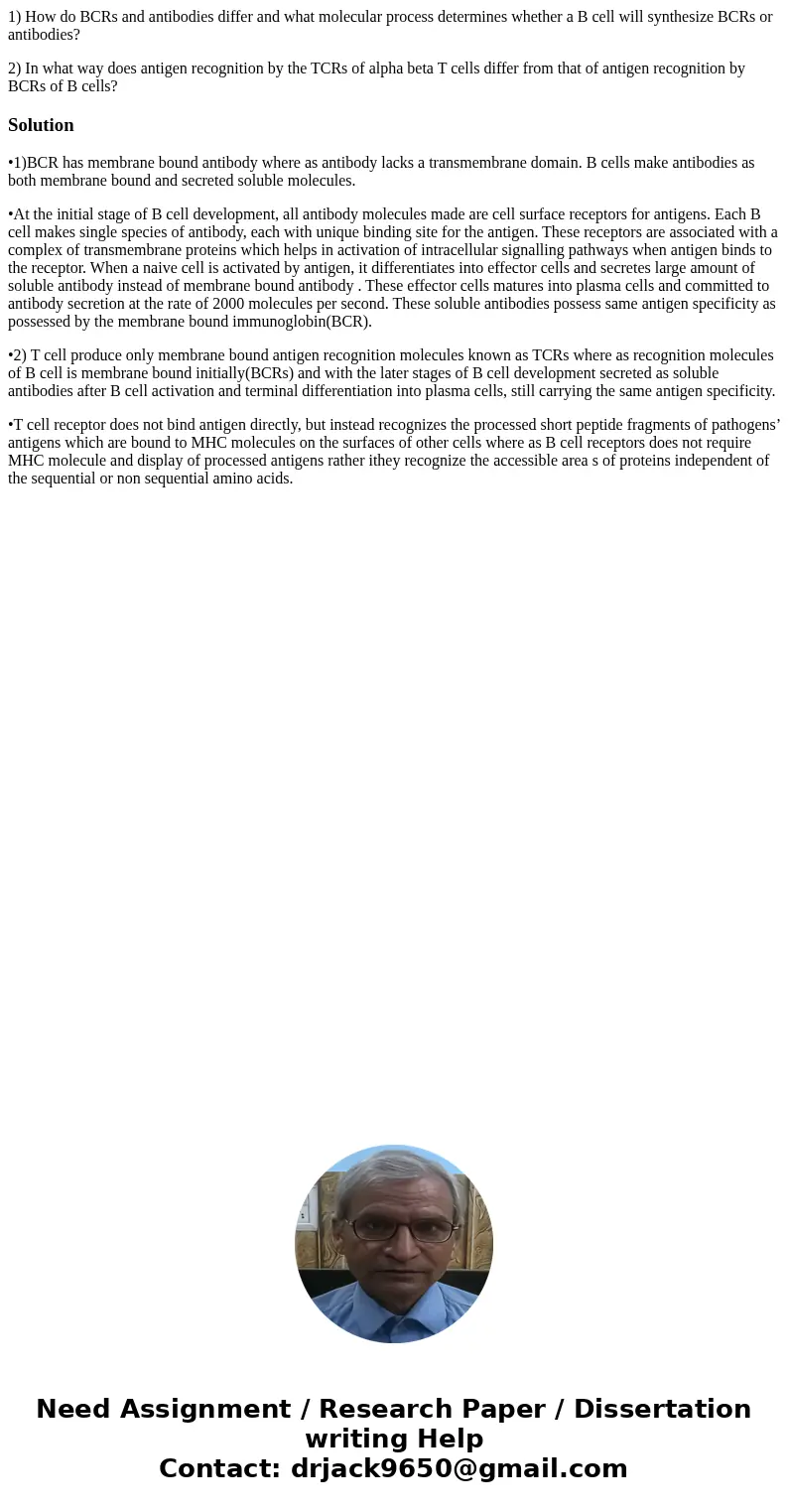1 How do BCRs and antibodies differ and what molecular proce
1) How do BCRs and antibodies differ and what molecular process determines whether a B cell will synthesize BCRs or antibodies?
2) In what way does antigen recognition by the TCRs of alpha beta T cells differ from that of antigen recognition by BCRs of B cells?
Solution
•1)BCR has membrane bound antibody where as antibody lacks a transmembrane domain. B cells make antibodies as both membrane bound and secreted soluble molecules.
•At the initial stage of B cell development, all antibody molecules made are cell surface receptors for antigens. Each B cell makes single species of antibody, each with unique binding site for the antigen. These receptors are associated with a complex of transmembrane proteins which helps in activation of intracellular signalling pathways when antigen binds to the receptor. When a naive cell is activated by antigen, it differentiates into effector cells and secretes large amount of soluble antibody instead of membrane bound antibody . These effector cells matures into plasma cells and committed to antibody secretion at the rate of 2000 molecules per second. These soluble antibodies possess same antigen specificity as possessed by the membrane bound immunoglobin(BCR).
•2) T cell produce only membrane bound antigen recognition molecules known as TCRs where as recognition molecules of B cell is membrane bound initially(BCRs) and with the later stages of B cell development secreted as soluble antibodies after B cell activation and terminal differentiation into plasma cells, still carrying the same antigen specificity.
•T cell receptor does not bind antigen directly, but instead recognizes the processed short peptide fragments of pathogens’ antigens which are bound to MHC molecules on the surfaces of other cells where as B cell receptors does not require MHC molecule and display of processed antigens rather ithey recognize the accessible area s of proteins independent of the sequential or non sequential amino acids.

 Homework Sourse
Homework Sourse